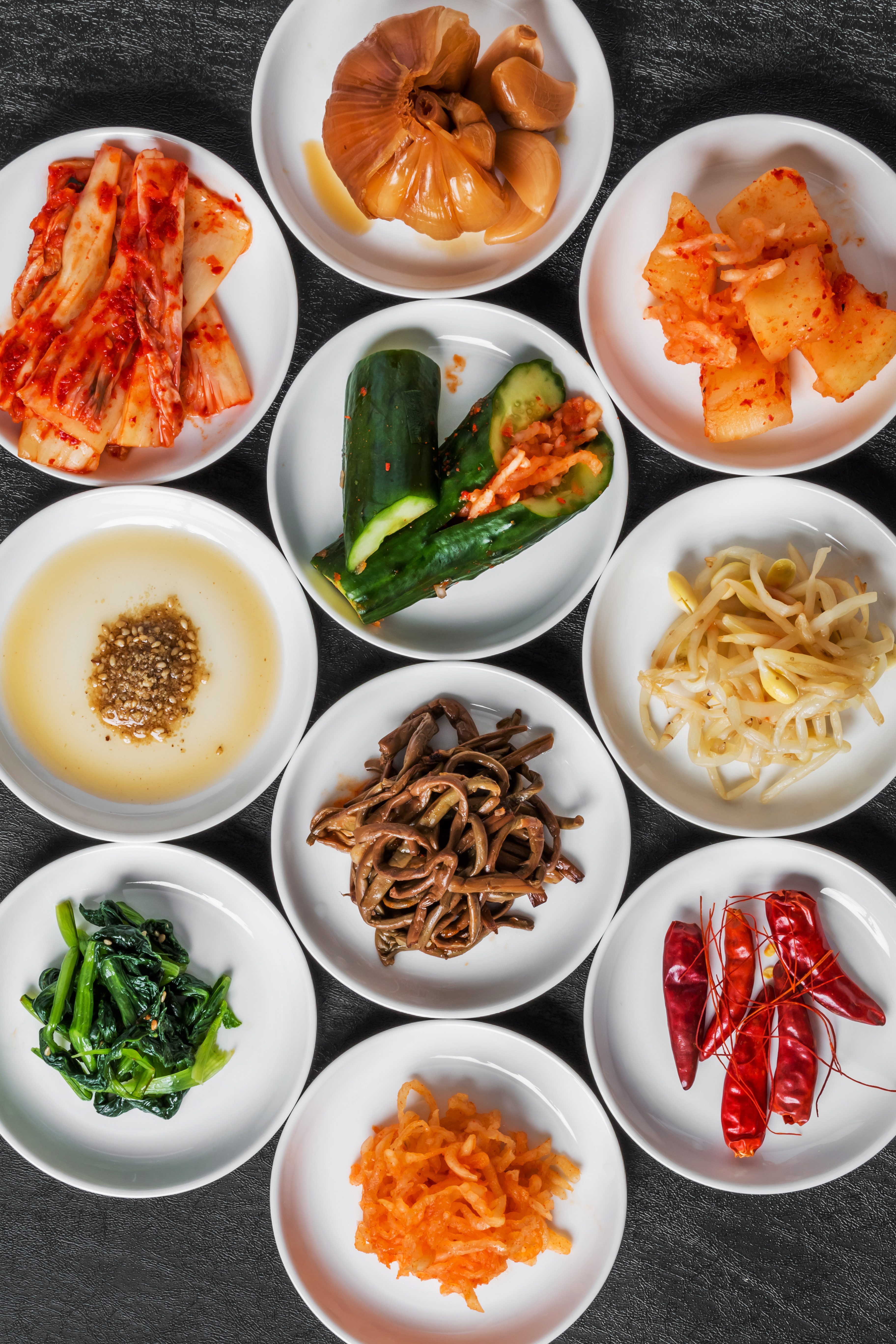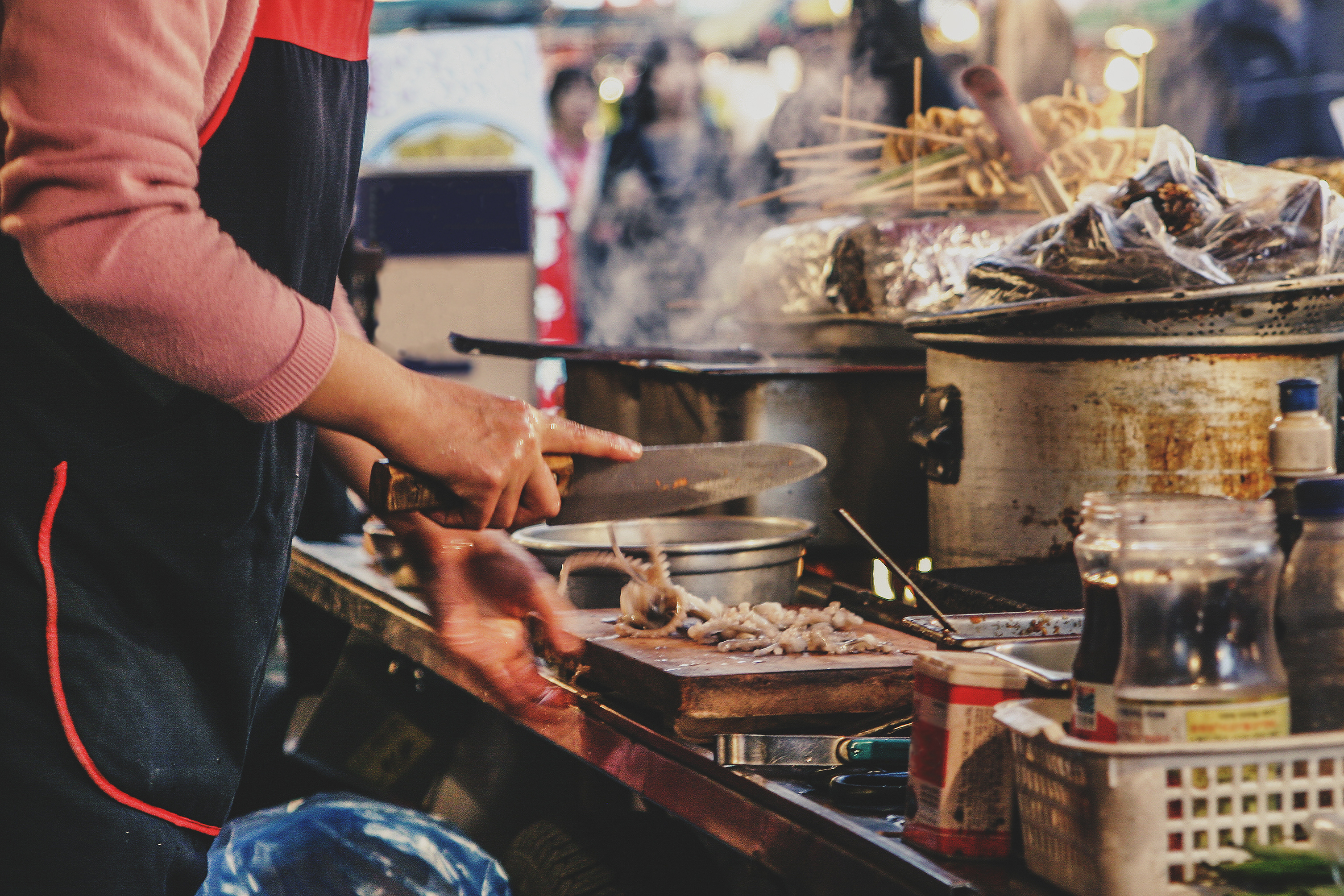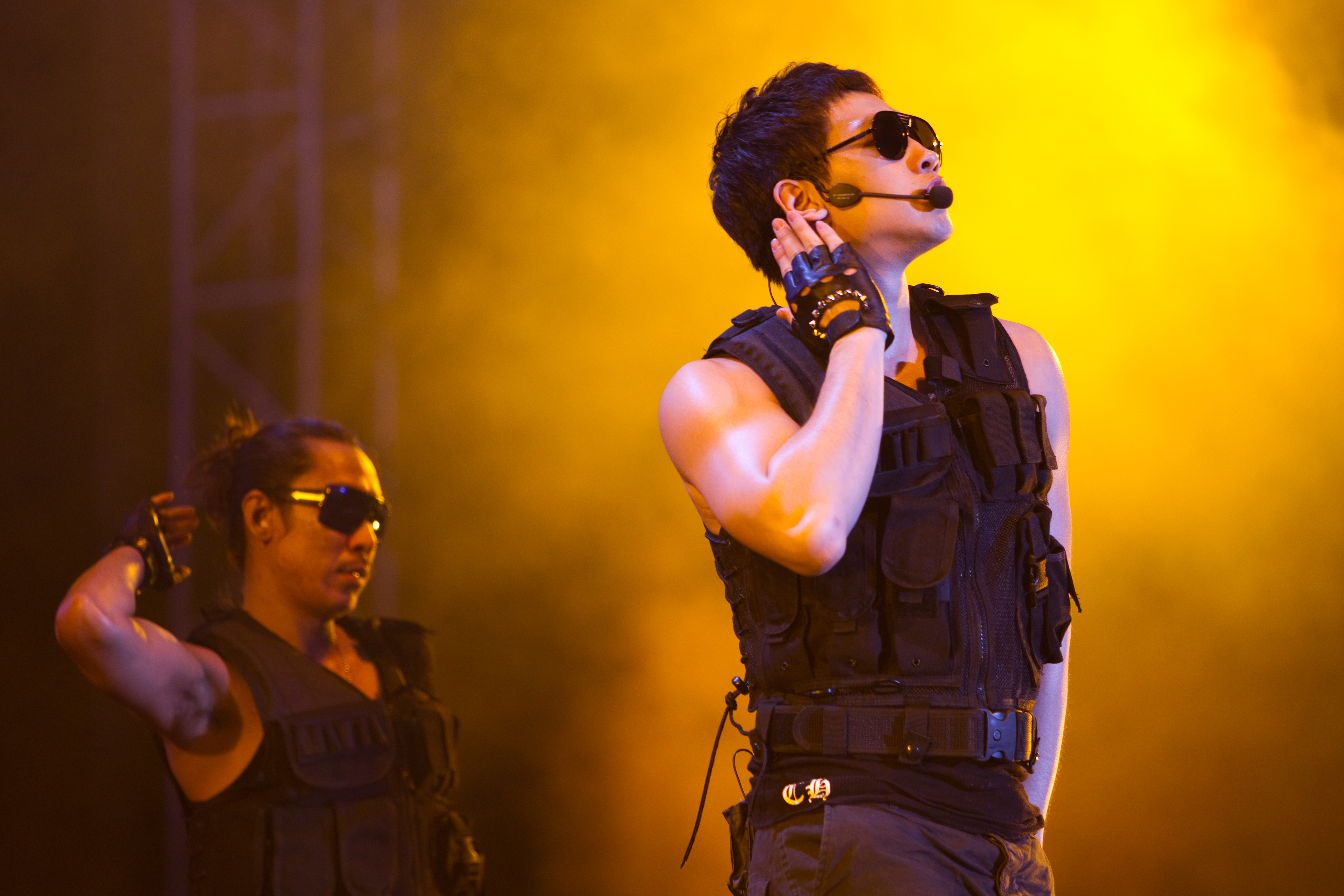America(ns) Around the World
John Cowie is an out of the sandbox contributor to The American Age. He isn’t an academic, and most importantly, never wanted to be one. His interests and hobbies include reading voraciously, not dying, and unironic enjoyment of teen vampire dramas. He has lived in Incheon, South Korea for over 15 years. He’ll be writing about his life as an American (and human) making his way in another culture and trying to un-puzzle not only his place in the world, but America’s.

Dog meat
One of the most persistent stereotypes about Korea is that of dog meat. It’s true. Dog meat soup is a thing, just not a very big thing. I have never seen dog meat in any supermarket nor been taken to a restaurant, nor been offered it in any manner. There is some strange fear among American tourists that they will be unwittingly or “just a prank bro” served dog meat at a restaurant, which is objectively irrational given its rarity and a complete absence of that type of humor in Korean culture. As far as I know its appeal is among middle aged and older men, as there is a cultural belief that it has the medicinal ability to give an erection. If I were to make a comparison of its popularity to an American food, I would say liver or chitterlings. Full disclosure, I had it several years ago. It is not unpleasant in taste, no gaminess, I would say similar to very soft pork.
Food
One of the most popular foods at this time, among all age groups, is a food called 막장, or makjang. My students often express this as their favorite thing to eat when they go home. Makjang restaurants are in every neighborhood, usually quite bustling. Makjang is pork rectum. I don’t know what it tastes like because I don’t want to eat a pig’s ass, and I will go so far as to say I don’t want to eat the ass of any other animal either. We all have to draw a line somewhere. Another food that is quite prevalent is boiled silkworm cocoons. Any street food area or outdoor market has them, a couple of bucks will get you a paper cup filled with them. My wife is quite fond of them, and will eat it quite unironically, and even drink the broth. As for taste, it’s quite predictable. Try to imagine what a boiled worm cocoon and larvae might taste like. It tastes about like that. It doesn’t taste like chicken at all.


Alcohol
To apply inflammatory stereotypes, Koreans are the Irish of the Asian world. I’ve been all about Asia and alcohol is freely consumed all about in most places, but nothing like Korea. The national drink here is called soju, which is a 20% liquor that tastes like vodka and costs in the neighborhood of a dollar for an 8-ounce bottle. Beer and wine are available everywhere, but significantly more expensive. It is also a rite of business people to go out for dinner and drinks with the office at least weekly and drink enough to the point of vomiting. Outside restaurants one can often see “kimchi flowers,” piles of vomit red from the kimchi present at every meal. One’s mettle is measured by the ability to work and be productive with a soul-crippling hangover. This tremendous social pressure is obviously extremely difficult for those who wish to avoid alcohol, as there is an implication that forgoing such activities can harm one’s upward mobility. My personal estimate of a police officer’s job in Korea is that probably more than 90% of their workload is alcohol related, and probably less than 10% commandeering buses or jet skis in high speed pursuits.
Drugs
In all of my time here, I have never seen, been offered, nor interacted with anyone I suspected to be under the influence of, illegal drugs. I read the internet like everyone else and know that it exists in places here, but it certainly has no prevalence that I can see. Korean drug law is quite draconian compared to other Western countries. Speaking from hearsay only, I have heard that if you even pee dirty for weed with the cops that can be six months in the pokey. I am not sure if that’s true, but I certainly believe it, and it would certainly require a rather reckless personality to put it to the test.
Crime
I will say this much; violent property crime is almost nonexistent here. I’ve never heard of or even read about a mugging, robbery or stick-up. I would say with confidence that an adult male could walk any part of Korea at any hour with nary a chance of being victimized. I can’t say the same for adult females. An aspect of Korean law I find fascinating is “blood money”, in which if individual A strikes individual B without retaliation, the cops will compel individual A to pay B a civil penalty or face criminal charges. This money from what I understand can be in the thousands of dollars. It does explain the lack of fistfights I have seen despite the copious amounts of alcohol. Domestic violence by my understanding is common and generally underenforced by police. Sex crimes are at a similar level to America. A refreshing difference from life in America is that car theft and break-ins are pretty much zero.
Guns
Given the prevalence of alcohol and the resulting behavior therein, I am quite pleased that personal gun ownership is for the most part prohibited here, as sending my kid to school doesn’t bear the same anxiety that I am certain it does for most American parents. I believe in the countryside rifles are allowed for hunting with strict licensure and they must be checked in and out at the police station on a per-use basis. There have been several instances of soldiers having mental breaks and committing mass shootings, but it is to the best of my knowledge thus far been limited to that environment.
Racism
There is no racism here. Here, we use the more friendly and erudite terminologies of ‘xenophobia’ or ‘differentiation.’ Yes, it exists. I would go so far as to say with a majority of the population, but it’s not like they have mullets and call me derogatory names or accuse me of taking their jobs, nor have I ever been shot by police during a traffic stop. Korea is basically a homogenous culture, with what I perceive to be a general mistrust toward foreigners and a feeling of intellectual and moral superiority over them. More often than I can count I have been sincerely complimented on my ability to drive a car or use chopsticks, as though I overcame some significant intellectual obstacle to gain such a skill. In short, foreigners are for the most part ignored but not mistreated, like an unpopular relative at Thanksgiving, or a stray dog. I am fine with this as I find their lack of interaction with me very compatible with my not liking to talk to people I don’t know. It’s a little confusing though. It’s like they never got the memo on global white privilege.

Western influence, perception, and similarities
I would compare the cultural norms here to what I imagine America was like in the ’50’s. There is a nearly complete social conformity in outside customs, mores and appearance. The excessively polite greetings and bowing are all strictly adhered to, although after that everyone is shitty to each other just like everywhere else in the world. An individual with a tattoo is assumed to be involved in organized crime, or a female to be a prostitute. I recall recently seeing something about North Koreans only being allowed 28 different hairstyles, which is tremendously more diverse than what I’ve seen here. Deviance from any of these unwritten laws is seen as a virus transmitted through western influence—things like homosexuality, pre-marital sex, pre-marital co-habitation, obesity, gambling and many others. As a rather extreme example of this, for visa retention I, and all other foreign residents, must submit to a yearly “health evaluation” that for the most part consists of a test for syphilis and AIDS, as I am from the high risk “not Korean” group. Even charisma and individualism are only acceptable within the confines of comedy programs and seen as eccentric otherwise. American individualism is seen as brash and uncivilized, perceived as arrogance and bravado. Trump is almost universally reviled for epitomizing these qualities. (His somewhat recent tweet about his “button” being bigger than Kim Jong Un’s was painstakingly and graphically analyzed in the media, going so far as to explain the American propensity toward dick jokes.)
Health Care
It is one of the core justifications for living here, and a principal concern if I am to transplant back to the states. It is cheap, comprehensive, and of the highest quality. I believe the premium deducted from my paycheck is less than $100 for my entire family of three and have unrestricted access to any clinic or hospital of my choosing. The doctor visit copayment varies, but averages around $2, with prescriptions about the same. As an example of how spoiled I have become by this, I recall being rather indignant a month or two ago when one of my medications had a $15 copayment. I wasn’t upset in a “you’ve lost my business forever and my Twitter followers will hear about this” kind of way, just surprised and quietly put out because that was the most I had ever paid for a prescription.

“The Blacklist”
Misbehaving celebrities are not tolerated here. There is no patience whatsoever for their antics in these parts. Evidently the government has the power to ban celebrities from ever appearing on any form of media, essentially killing their career. Some stories that come to mind are, Bom, from the K-pop group 2NE1, who got caught with Adderall at the airport. It was prescribed by an American doctor, but evidently a big no-no. Noh Hong Chul, the elevator guy in the Gangnam Style video got caught drunk driving. My favorite was MC Mong, another K-pop star. He had several of his teeth pulled out to evade conscription to the military, and to make matters worse was caught on camera smoking a cigarette.


0 Comments